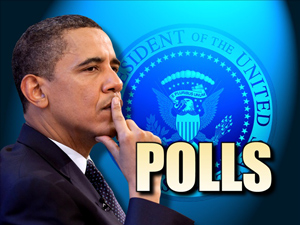JIM.LOBE, IPS

WASHINGTON – While confidence in Barack Obama overseas has declined–in some countries, quite sharply–since his 2009 election, the U.S. president and the U.S. in general still receive higher approval ratings among publics abroad compared to 2008, George W. Bush’s last year in office, according to a major new survey of 21 countries released here recently.
The survey, which was based on interviews conducted with some 26,000 respondents, also found that majorities and pluralities of respondents in 11 of the 21 countries, including the U.S. and most European nations, believe that China has eclipsed the U.S. as the world’s “leading economic power.”
Respondents in predominantly Muslim countries have been particularly disappointed by Mr. Obama and his foreign policies, although he remains highly popular in Europe, Japan and Brazil where his re-election is supported by large majorities, according to findings of the latest survey by the Pew Global Attitudes Project.
Much of the fall in Mr. Obama’s overseas approval ratings appear related to his failure to meet initially high expectations, particularly regarding the persistence of U.S. unilateralism under his stewardship, and his failures both to change U.S. policy toward the Israel-Palestinian conflict and to more seriously address the challenge posed by climate change.
Significant majorities in all but three countries of the 21 countries surveyed–the U.S. itself, Britain and India–disapprove of his growing use of drone strikes against suspected terrorists in Pakistan, Yemen, and Somalia, as his favored counter-terrorist weapons. The tactic is particularly unpopular in predominantly Muslim countries, according to the survey.
The new survey, which was conducted between mid-March and mid-April is the eleventh in an annual series that has polled opinion on various international issues in as many as 47 nations at a time. It was released June 13.
This year’s editions included the U.S. and Mexico in North America; Brazil in South America; and nine European countries: Britain, the Czech Republic, France, Germany, Greece, Italy, Poland, Russia and Spain.
In the Greater Middle East, the survey included Egypt, Jordan, Lebanon, Tunisia, and Turkey; while Asian countries included China, India, and Japan. Pakistan was also surveyed, but most detailed findings gained from that poll will be released at a later date, according to Pew which released findings from this year’s survey about global perceptions of Iran’s nuclear program last month.
Unlike previous polls, no Sub-Saharan country was included this year.
While the report focused primarily on the global perceptions of Mr. Obama, U.S. foreign policy, and the United States more generally, the standing of other major powers was also addressed.
For the first time since Pew began its Global Attitudes Project, it found that more people believe that China has become the world’s leading economic power than those who believe the U.S. retains the title. That view was most pronounced among European nations, as well as Japan, Turkey and Lebanon.
Months before the onset of the 2008 global financial crisis, 45 percent of all respondents named the U.S. as the world’s leading economic power, while only 22 percent named China. In the latest poll a median of 42 percent named China, compared to 36 percent who cited the U.S.
“The global financial crisis has taken a toll on the image of the United States as an economic power,” said Andrew Kohout, director of the Global Attitudes Project.
In 13 of the 16 countries that were polled in both 2008 and 2012, Washington’s image has improved. The improvements were most spectacular in Europe and Japan. In France, Spain, Germany, Italy, and Japan, Washington increased its favourability ratings among respondents by 21 percent or more.
Much of that improvement reflects continued support and hope for Obama himself, according to Mr. Kohout who noted that “the U.S. image trails how (its) president is regarded.”
Approval of his actual international policies fell even more sharply over the past three years — by a median score of 15 percentage points in Europe (from 78 to 63 percent), 19 percent in Muslim countries (from 34 percent to 15 percent), 18 percent in Russia, 30 percent in China, and 19 percent in Japan, according to the survey.
At the same time, majorities or pluralities in 12 of the countries said they favoured his re-election, with support highest among traditional U.S. allies in Western Europe, in Brazil, and Japan.
Respondents in Russia and Tunisia were evenly split, while, with the exception of Turkey, pluralities or majorities in the other Muslim states, China, and Mexico said he should not be re-elected.












